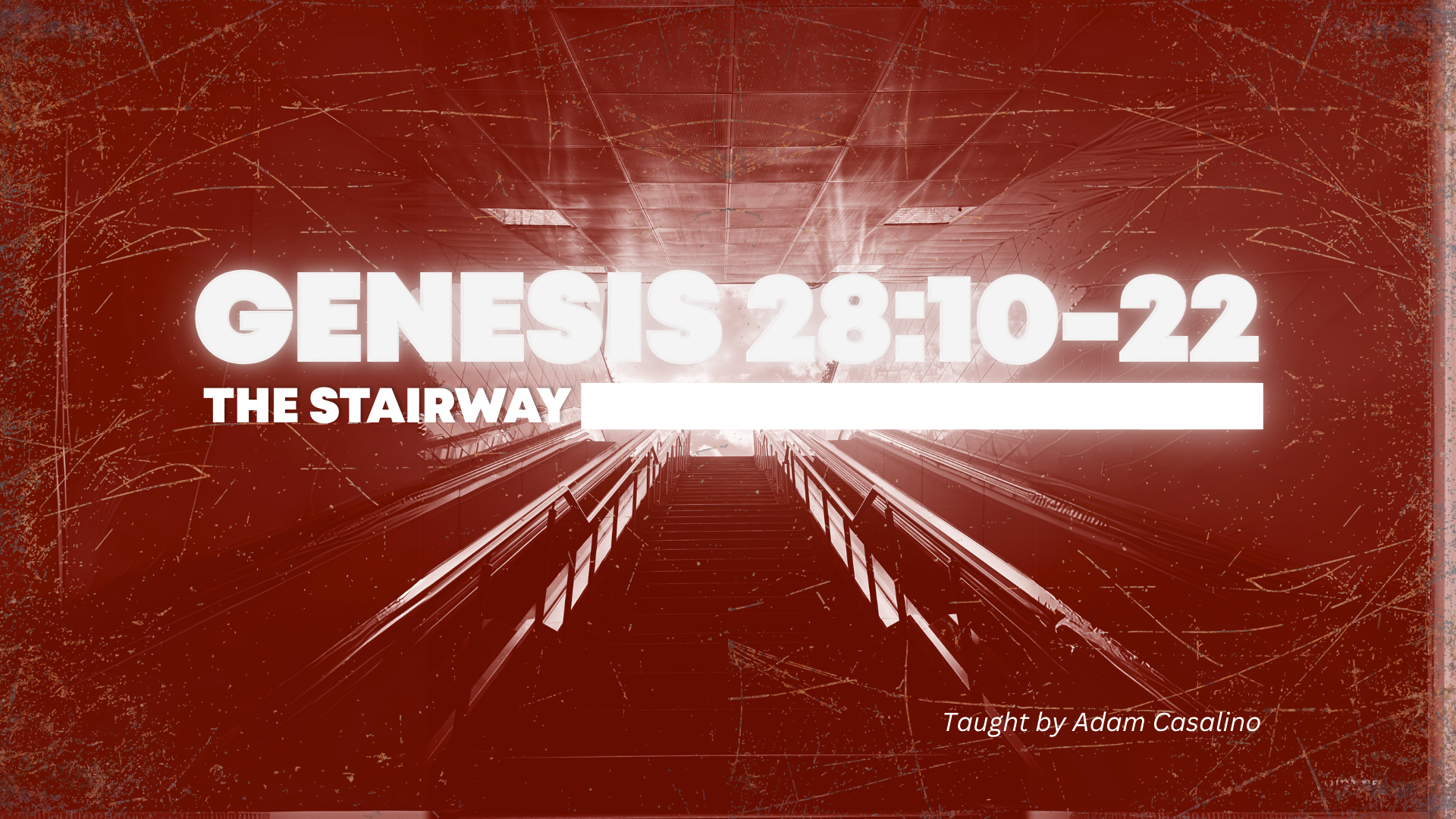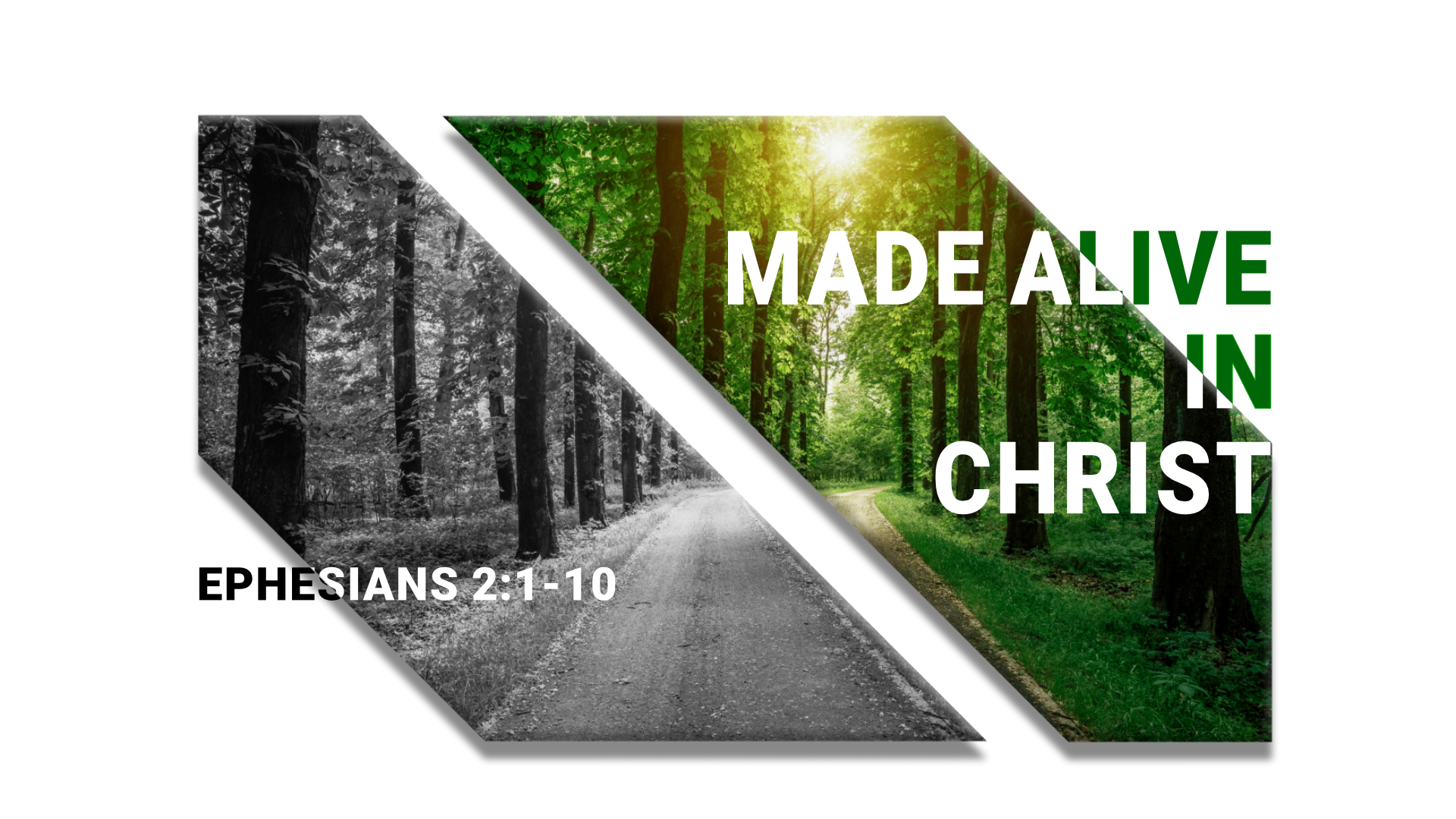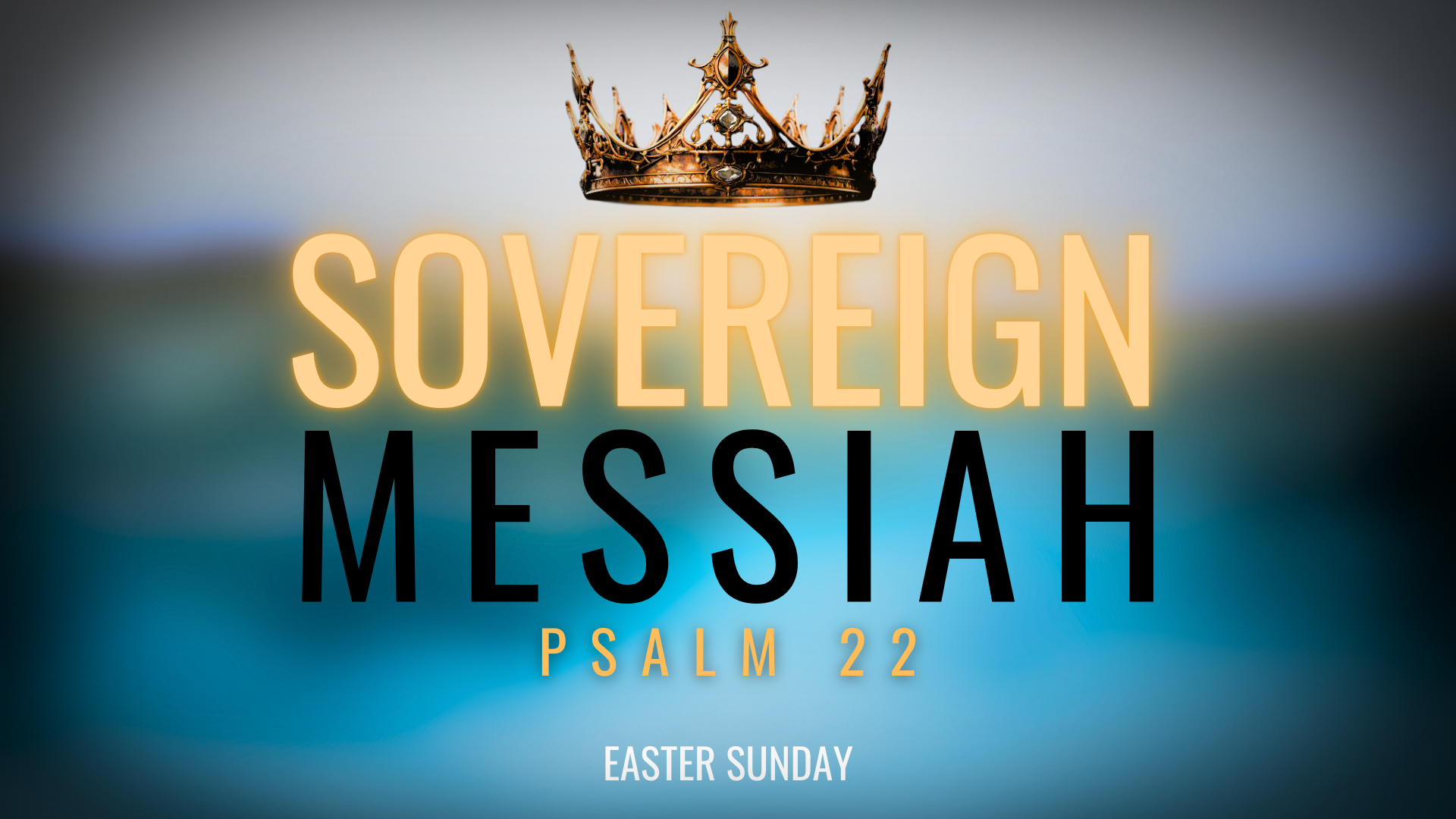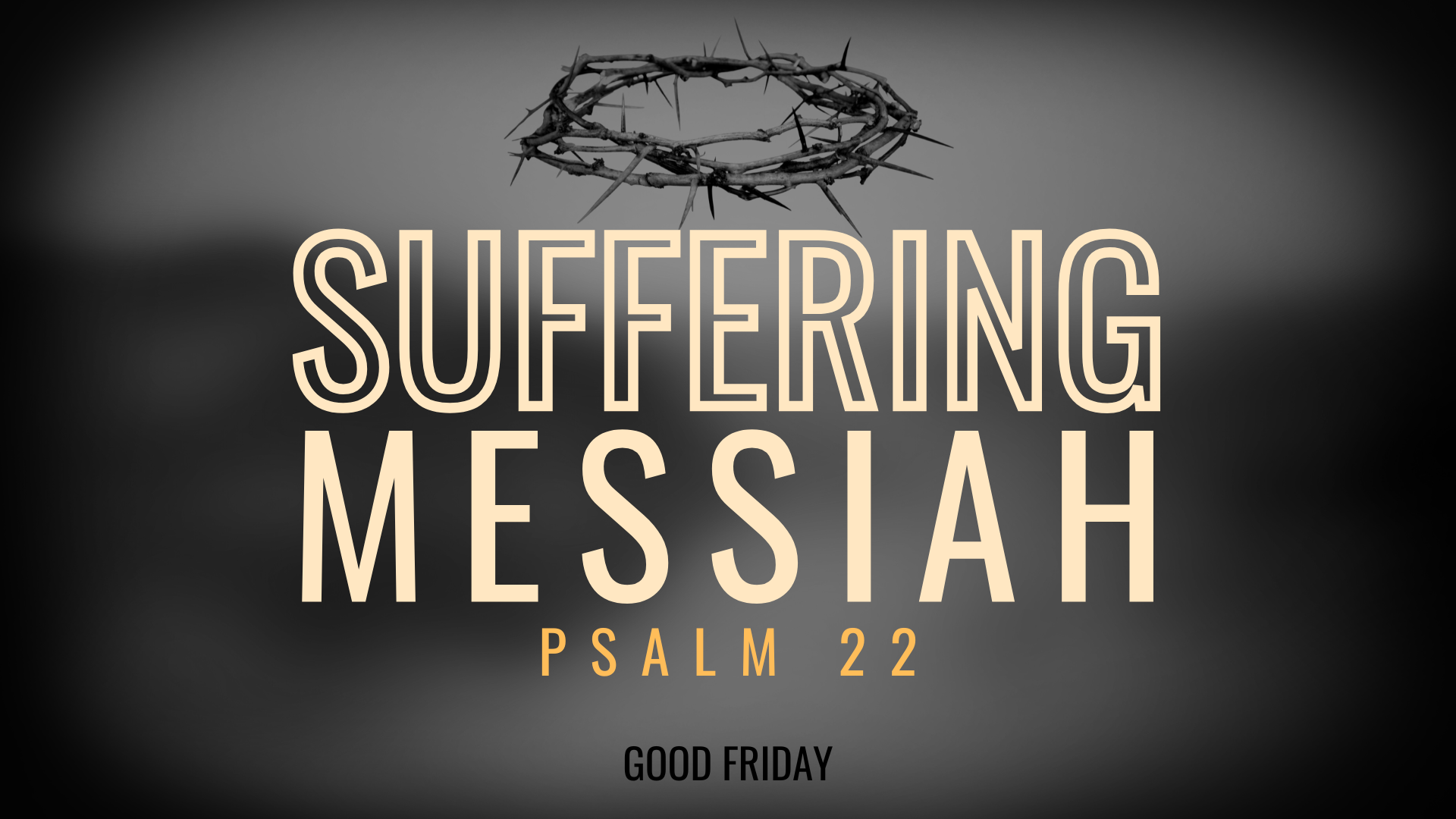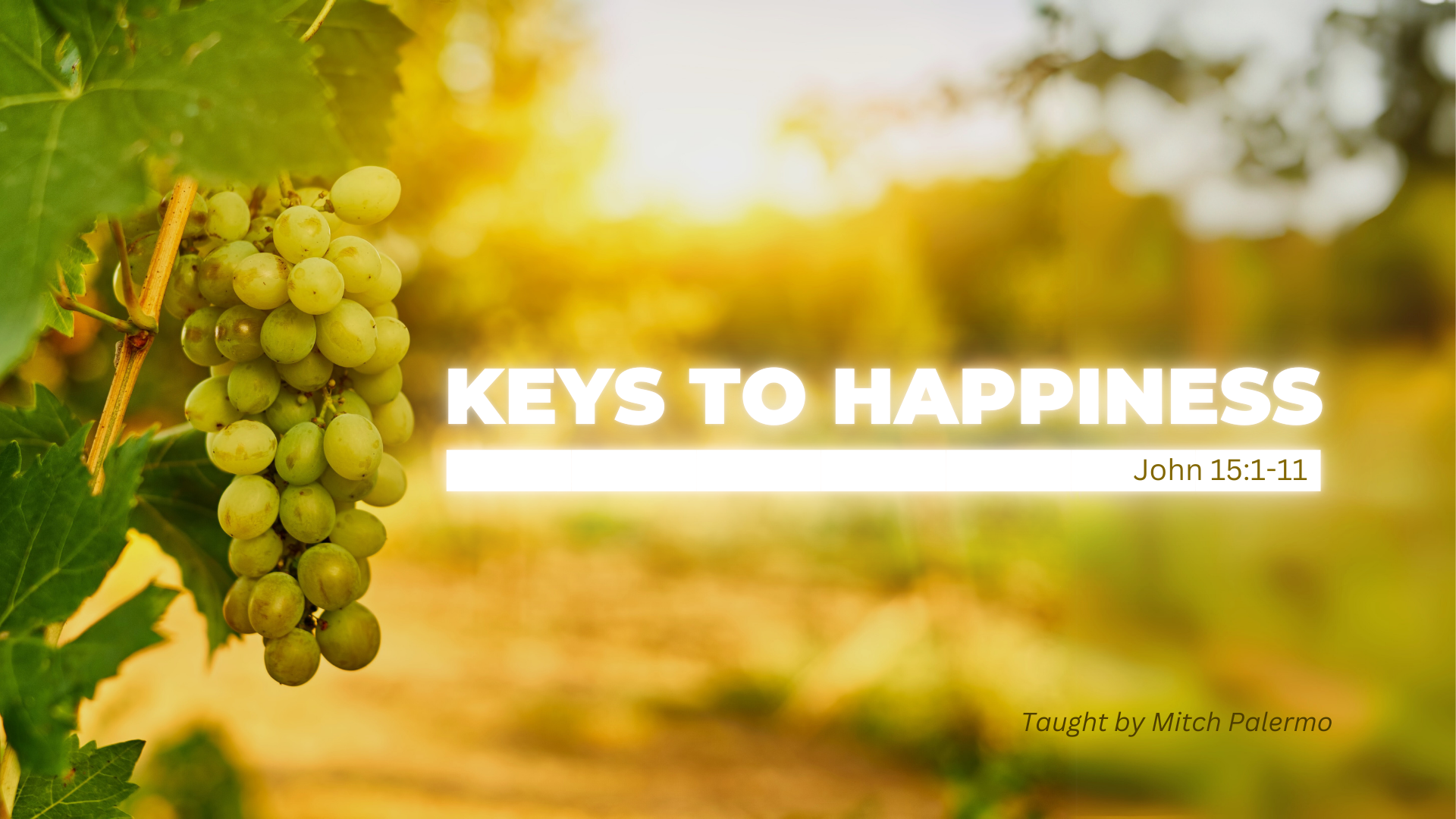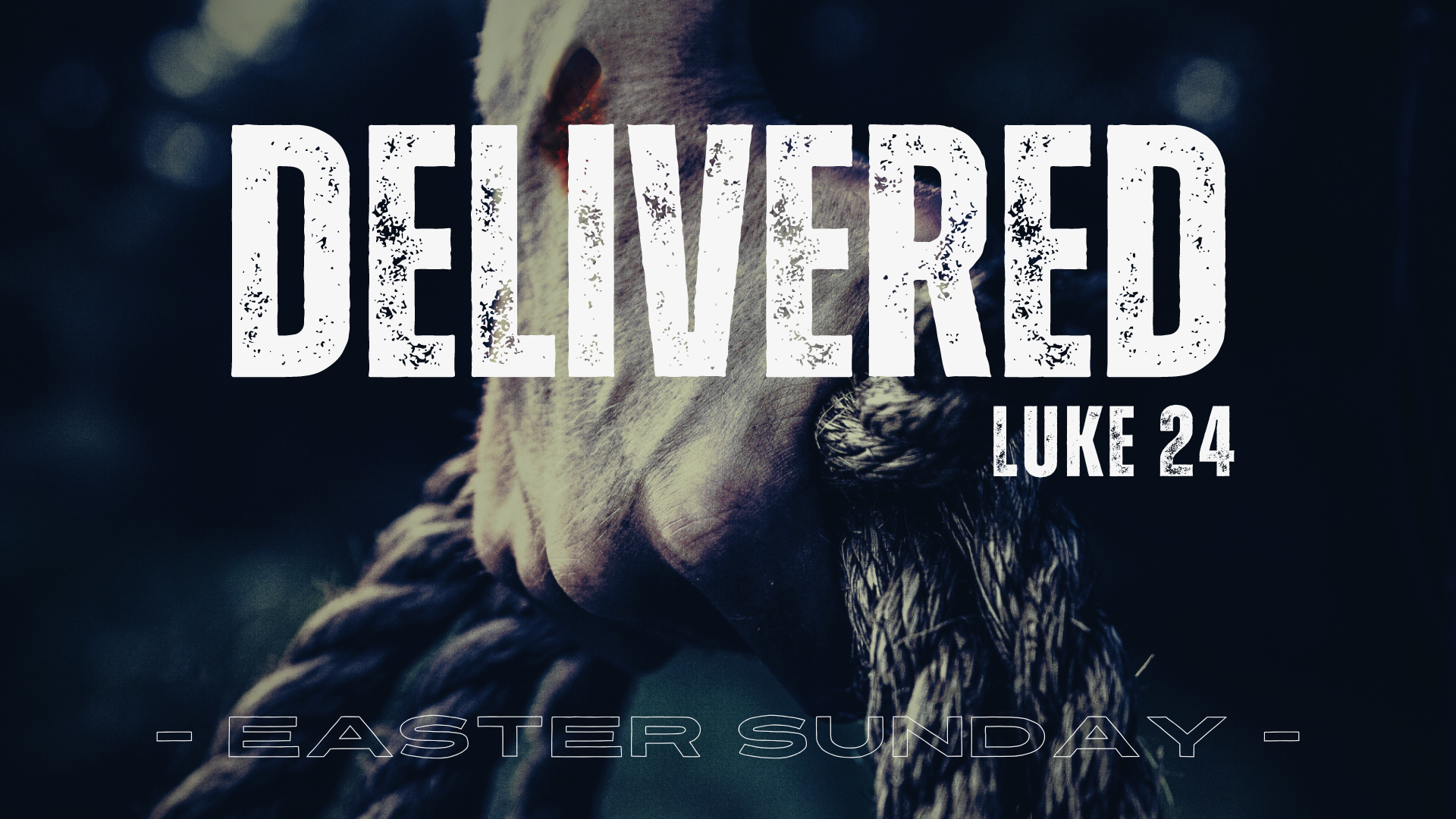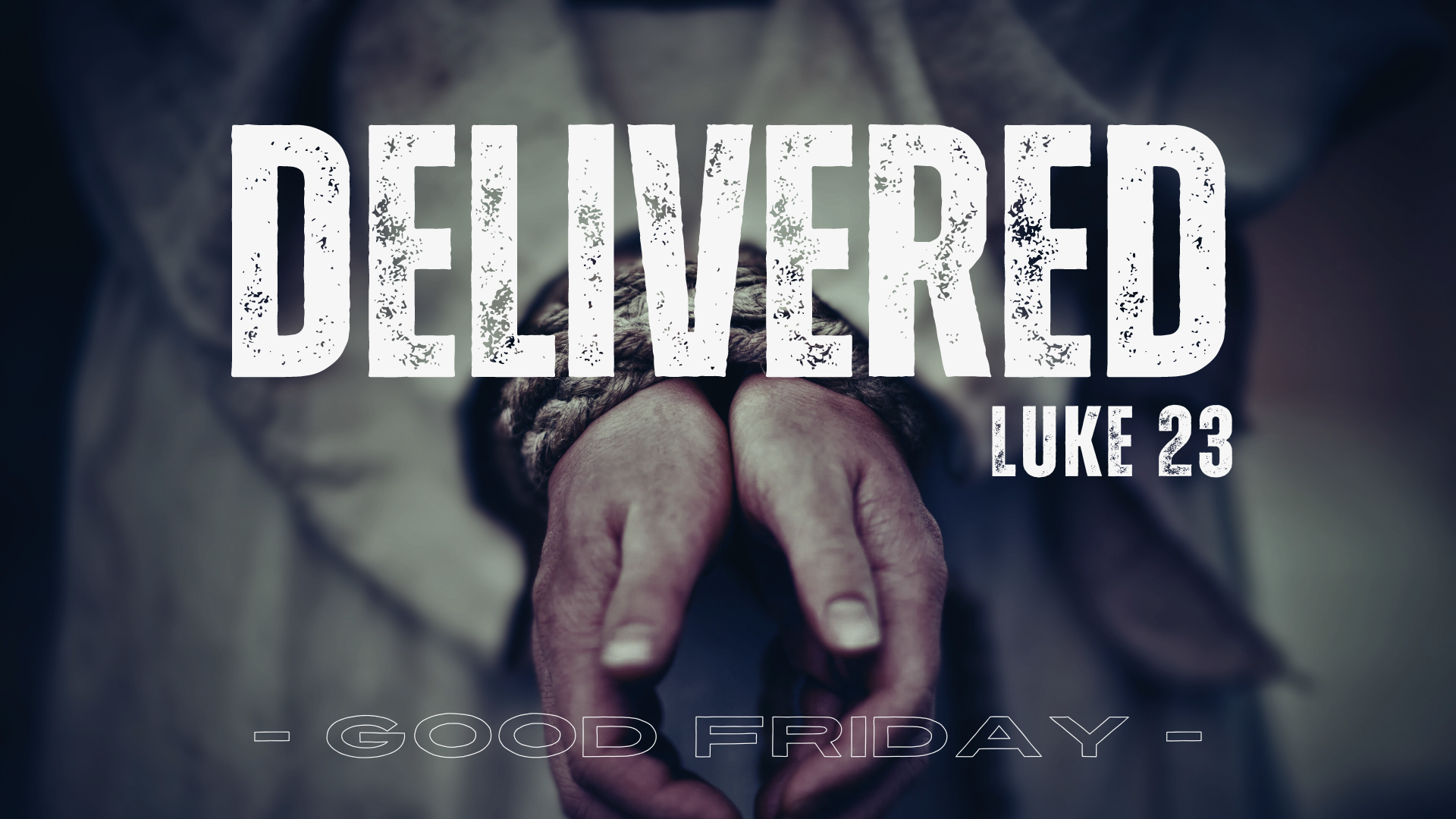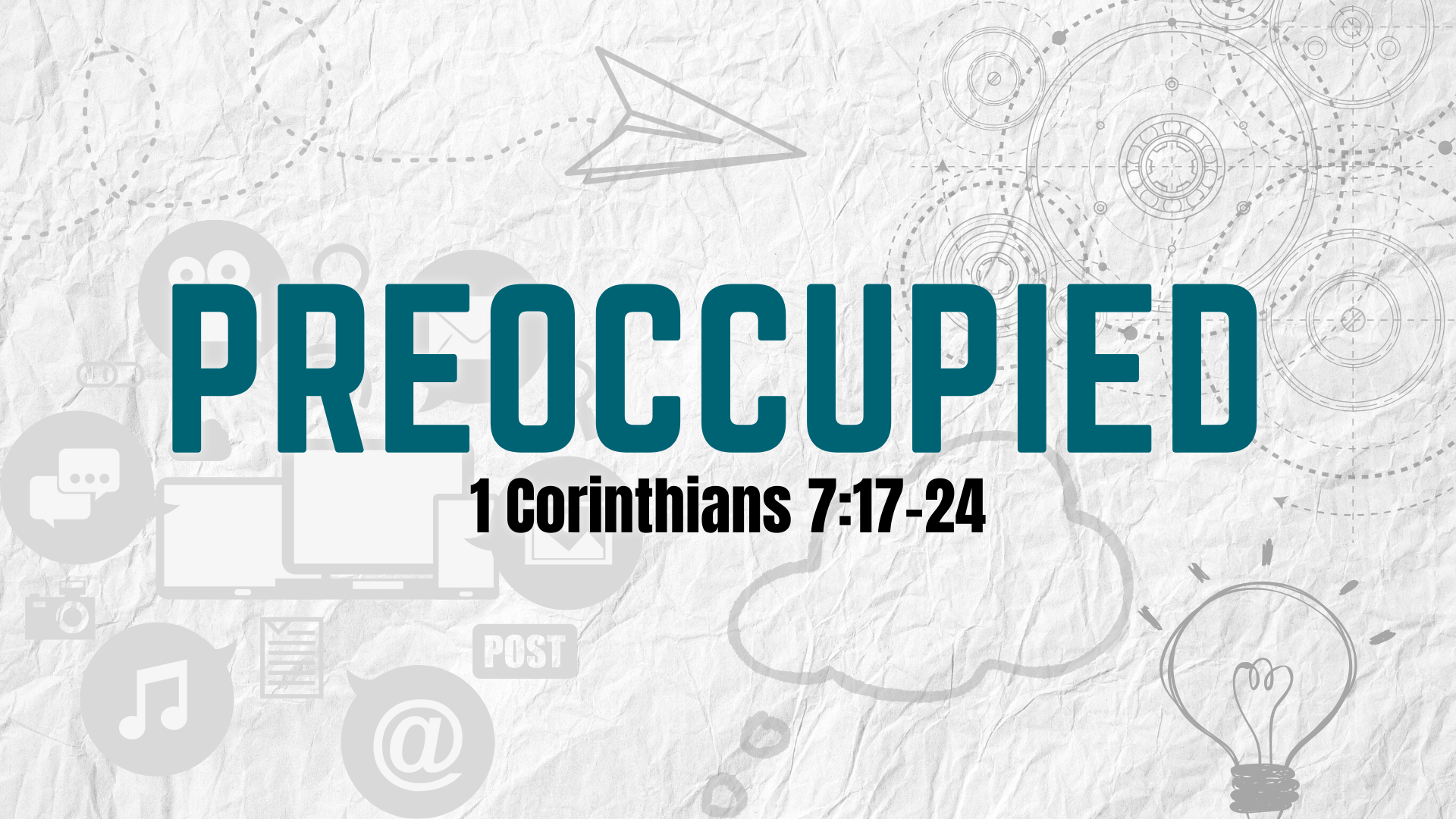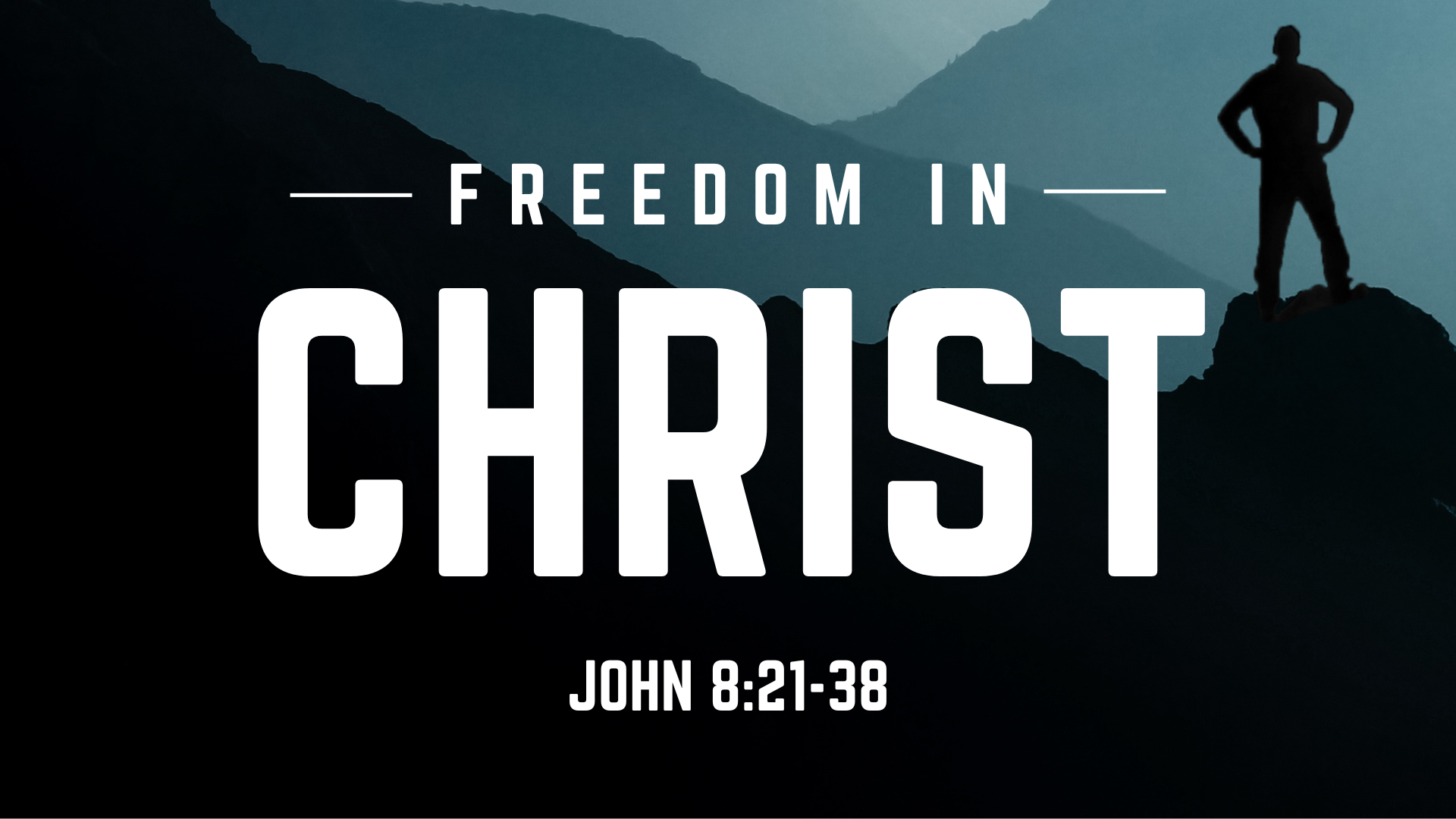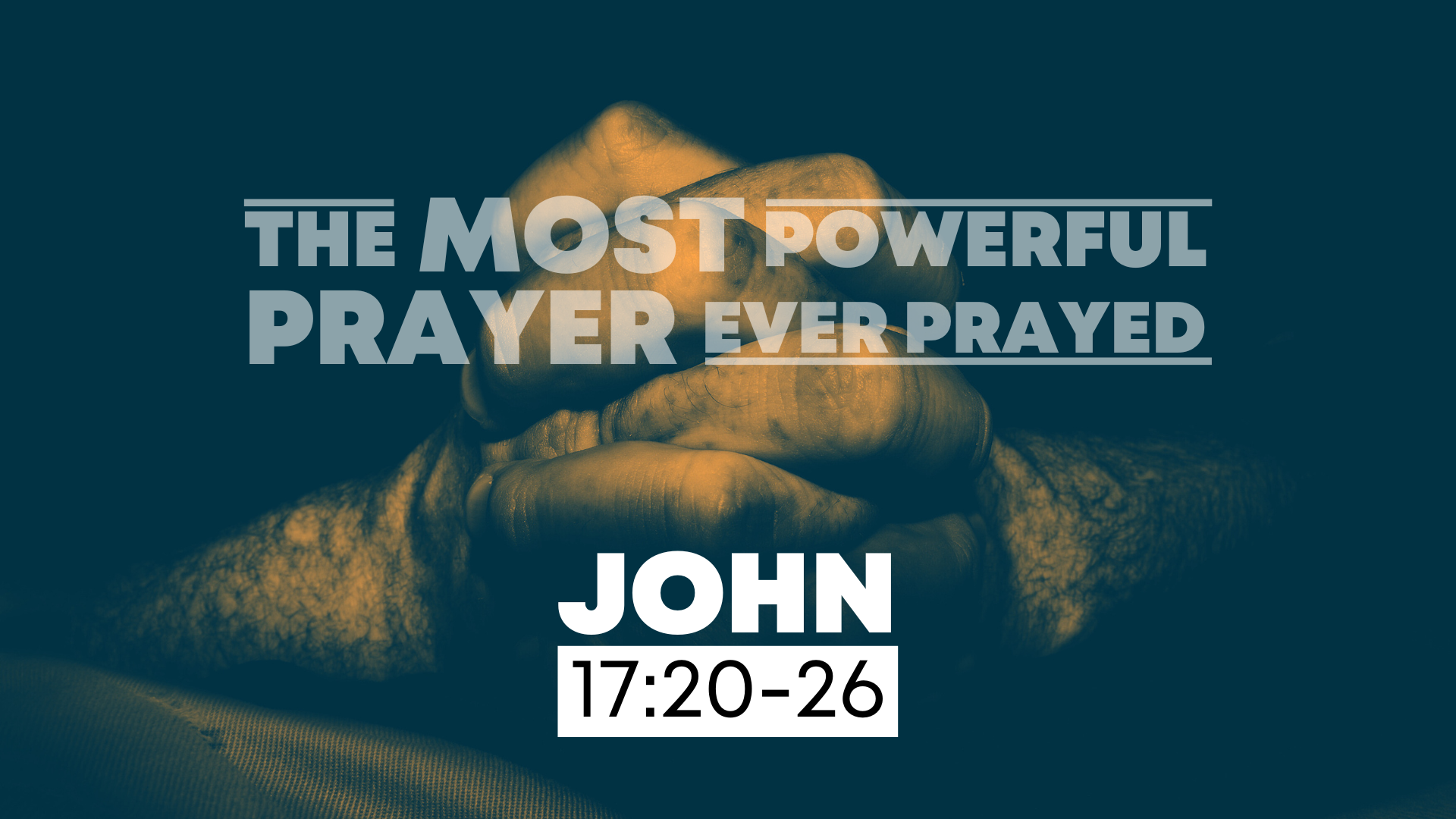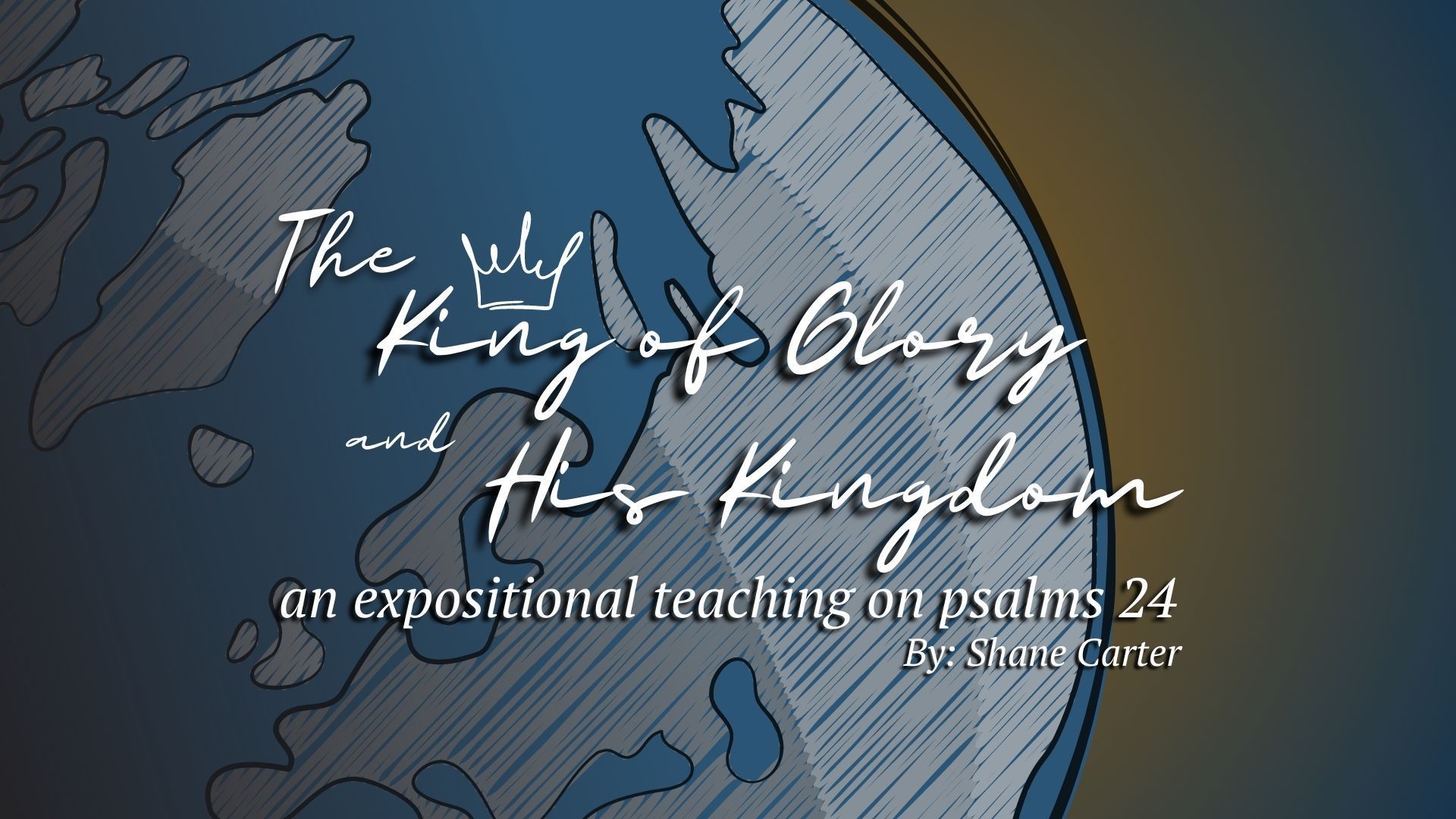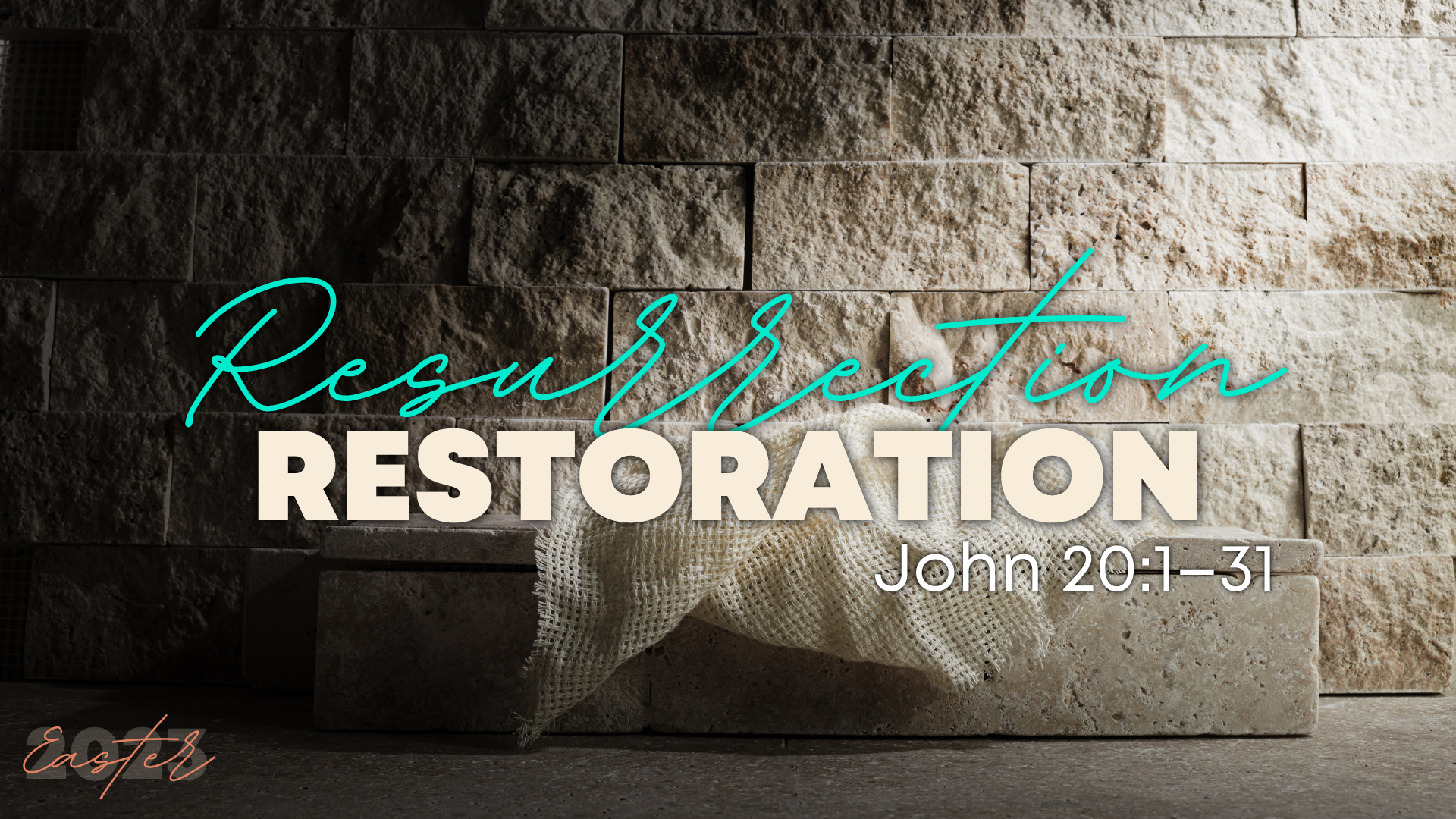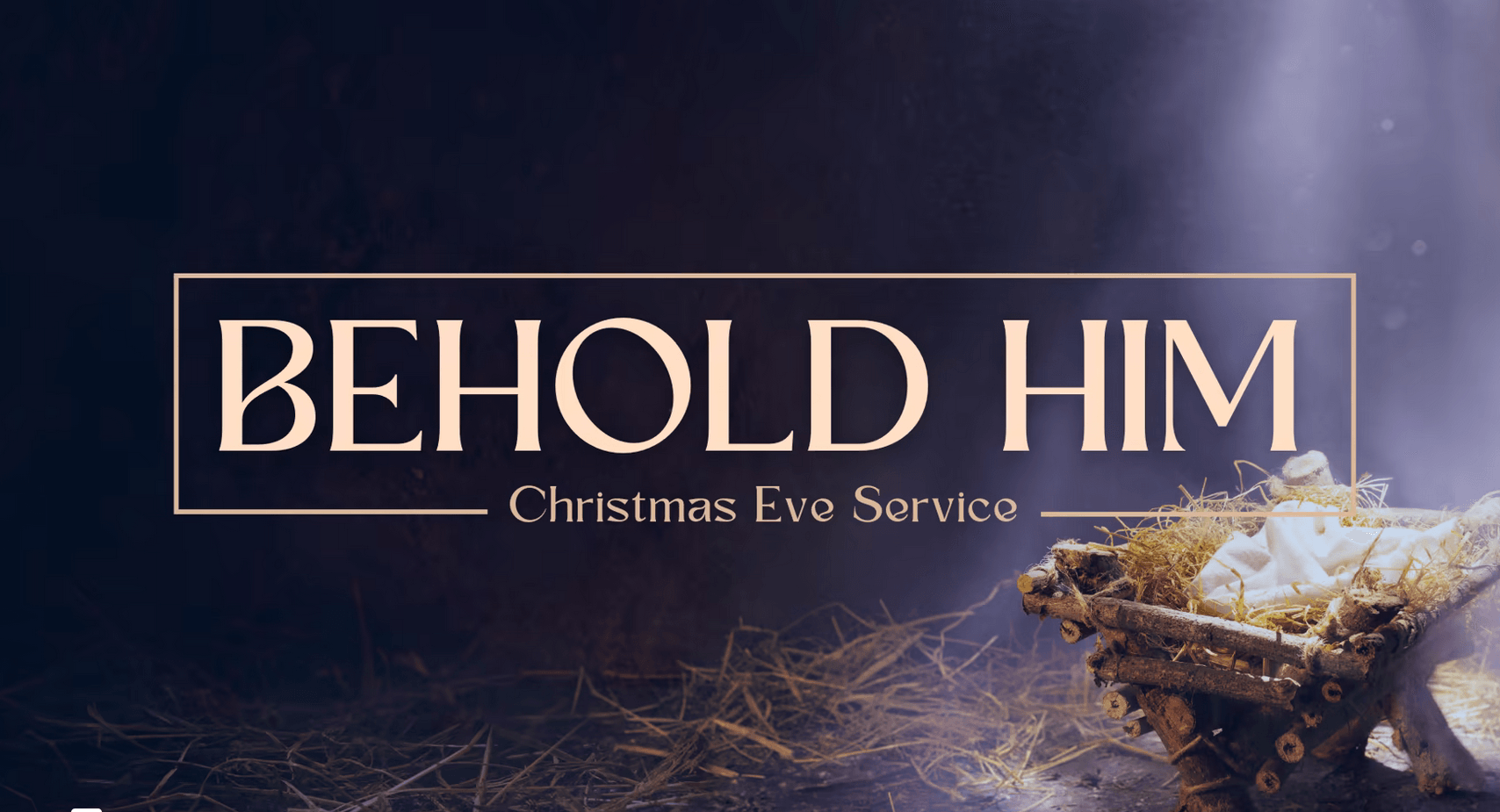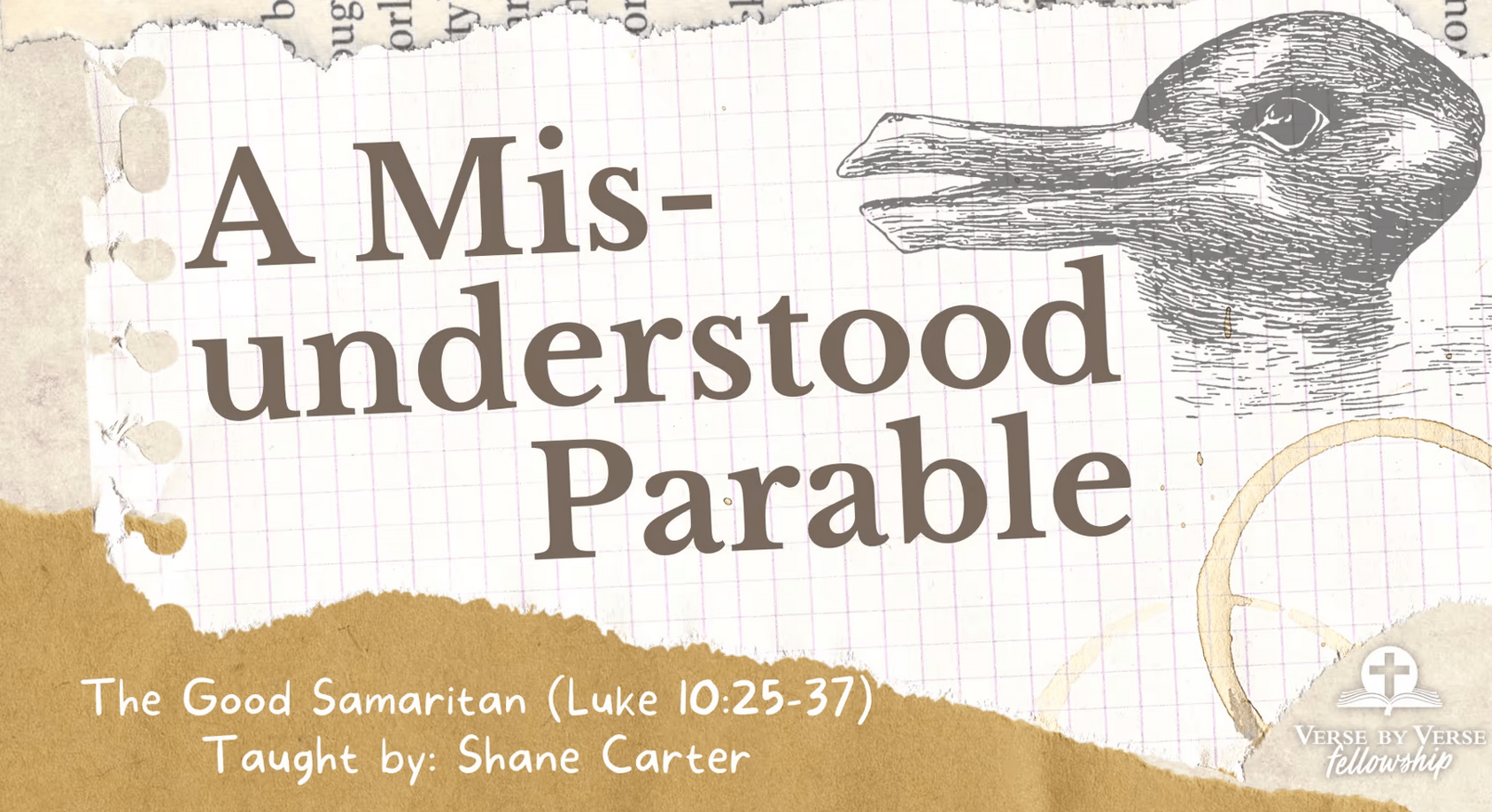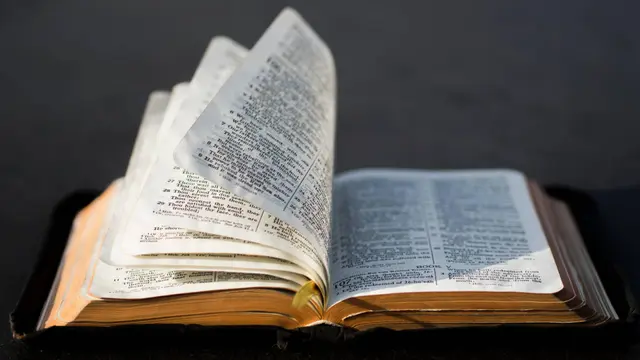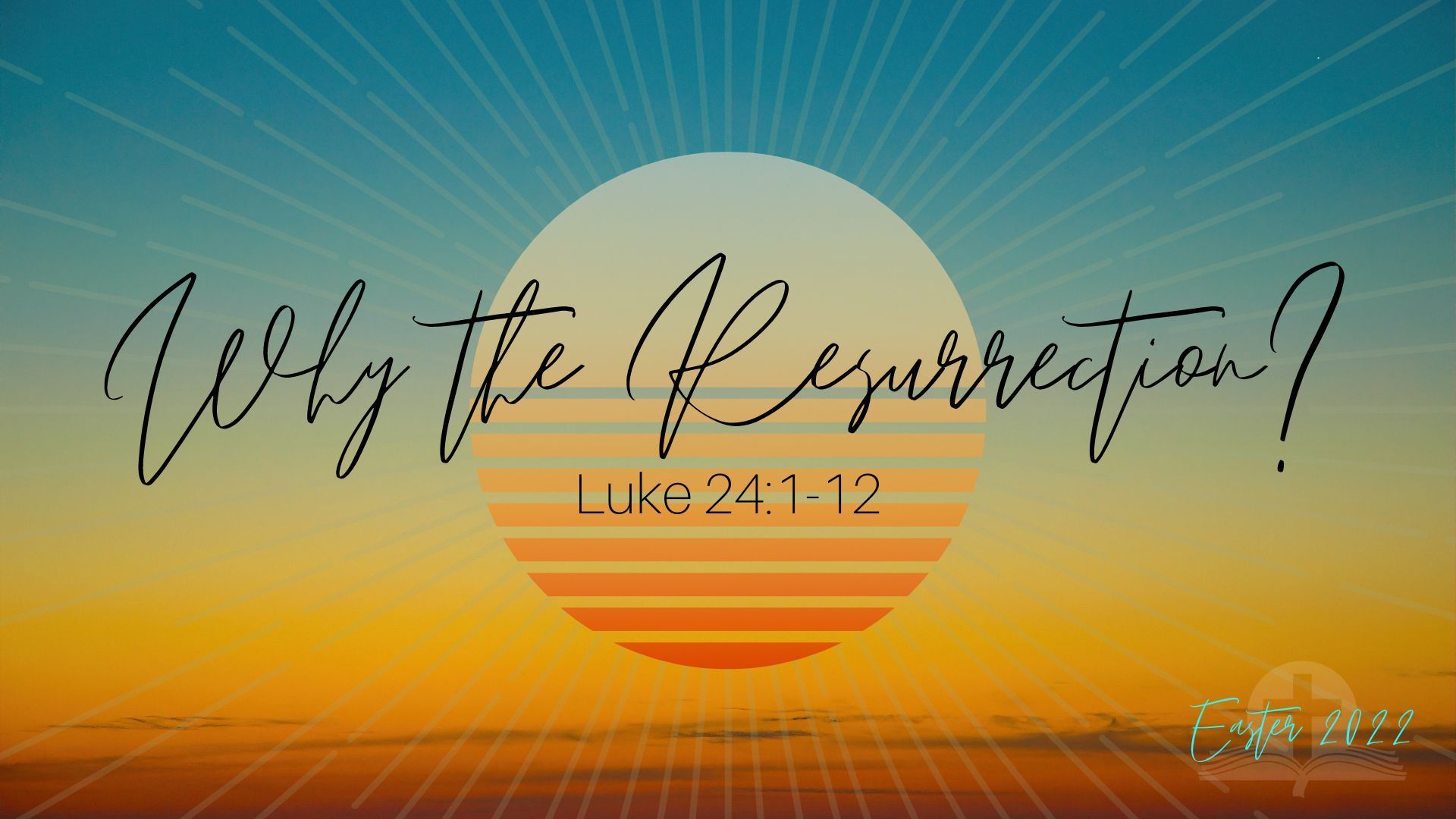MANUSCRIPT
1 Samuel 1: A Tale of Husband and Wife - Opening Slide
Today, we will be looking at the book of 1 Samuel. I've had the joy of spending quite a bit of time in this book over the last year.
I've been studying it for my podcast and the honor of teaching here at church.
We'll be starting at the beginning, chapter one. While I can't promise I'll be back soon to go through the entire book with you--there is plenty we can learn from this first chapter.
Most of you probably know some of the background for 1 Samuel, but I'll go over it in brief.
First and Second Samuel were originally one book. It was divided when the Greek OT was made and has been ever since.
There is debate over who wrote the book and when. We can be confident that the opening chapters were written by Samuel himself.
The content is too close to him for anyone else to have written it. The later chapters, on through David's life, we don't know.
It's possible David wrote the later chapters or, at least, dictated the events to a scribe. The entire book (both 1st and 2nd) would have been compiled after Solomon's death in 930 BC.
Now, to the good stuff. First Samuel is a critical book in the story of Israel. When the book opens, Israel is little more than a rag-tag group of tribes, struggling to control the land God promised them.
The events occur at the end of the time of judges. A key verse to describe Israel at this time comes not from 1 Samuel, but from Judges 21:25--the last verse of that book.
Judges 21:25: In those days there was no king in Israel. Everyone did what was right in his own eyes.
This is an important point for our discussion tonight. Although one nation, the twelve tribes were constantly at odds with each other.
There was no unifying ruler, no king, to compel the people to obey the Lord. So, most Israelites didn't serve the Lord.
They did what was right "in their own eyes." Meaning, they did whatever they wanted to do--in defiance God's of commandments.
But by the end of 2 Samuel, the nation is very different. It is united under a single monarchy, about to experience its greatest period--as Solomon takes the throne.
Israel, by that time, is known all over the globe, the envy of the world in many cases.
How did this happen? How did a nation, which couldn't get its act together in one generation, now command the attention of great empires of the world?
We learn that, in 1st and 2nd Samuel.
What's critical to keep in mind, though, is how the book tells us this story.
When you think of these high and lofty things, great nations and kingdoms. The rise and fall of empires, you might expect this book to read very differently than it actually does.
Some books of the Bible take a broad view of Israel's history, going over major events, the clashing of armies, and the conflicts between kings.
But 1 Samuel doesn't do that. Major changes take place in Israel at this time, but the history is communicated to us in an up-close, intimate way.
Through the lives of individual people.
This is a characteristic hallmark of the book. God is doing great things for Israel, but through people.
This teaches us an important truth: although God is great and powerful, the ruler of all the universe, he is intimately involved in our personal lives.
God is not some lofty being, separated from his creation, unconcerned for our "small" cares and troubles.
As we'll see in chapter one, God cares very much about our lives and what we are going through. In fact, he's more involved in them than we often realize.
So, that brings us to chapter one of 1 Samuel. A book that shows us how Israel becomes a great kingdom... begins with the story of one man and his family.
Before we jump in, there's one more feature of the book I want to explain. This can be helpful, when you continue your study of the book on your own time.
First Samuel will often emphasize a certain truth, a Biblical principle, by holding up two people side by side. We call this juxtapositioning or the use of a "foil" in literary terms.
The Bible does this quite often. It'll take two people, or two groups, or sometimes one person and a group, and hold them up together so we can see the contrast between their character.
One person will show us the godly response to a situation, the other... the ungodly response.
Once you learn to recognize this mechanic, you'll see it popping up everywhere. First Samuel does it constantly, and it's a valuable means of teaching God's truth.
You'll notice this right away in chapter one.
1 Samuel 1:1–8: There was a certain man of Ramathaim-zophim of the hill country of Ephraim whose name was Elkanah the son of Jeroham, son of Elihu, son of Tohu, son of Zuph, an Ephrathite. He had two wives. The name of the one was Hannah, and the name of the other, Peninnah. And Peninnah had children, but Hannah had no children.
Now this man used to go up year by year from his city to worship and to sacrifice to the LORD of hosts at Shiloh, where the two sons of Eli, Hophni and Phinehas, were priests of the LORD. On the day when Elkanah sacrificed, he would give portions to Peninnah his wife and to all her sons and daughters. But to Hannah he gave a double portion, because he loved her, though the LORD had closed her womb.
And her rival used to provoke her grievously to irritate her, because the LORD had closed her womb. So it went on year by year. As often as she went up to the house of the LORD, she used to provoke her. Therefore Hannah wept and would not eat. And Elkanah, her husband, said to her, “Hannah, why do you weep? And why do you not eat? And why is your heart sad? Am I not more to you than ten sons?”
Let's talk about Elkanah for a minute, shall we? You'll remember that, during this time, most Israelites were not serving the Lord, according to Judges 21:25.
But Elkanah, as we see, was different. At a time when his neighbors were worshipping false gods, engaging in whatever sin they liked, he continued to follow the traditions of his fathers.
An important detail to note, which is not in the text, is that Elkanah was from the tribe of Levi. How do we know this? According to 1 Chronicles 6:27, 28, which details the descendants of Levi, Elkanah and his family line are mentioned.
He is a descendant of Kohath, the son of Levi--the same clan as Moses and Aaron. Why is this important?
You need to keep in mind that the Levites were the spiritual leaders of the nation. The family of Aaron served as priests, but the rest of the tribe carried a special responsibility.
They were not given their own portion of land. Instead, according to Numbers 35:1–8, they were given cities spread out across the Promised Land.
The goal of this, it seems, was so that the Levites could provide spiritual direction to the rest of the nation (as well as provide cities of refuge).
The Levites were the only tribe who sided with Moses when the rest of the nation worshipped the golden calf (see Exodus 32:26).
God honored the Levites by giving them a unique role as advisors and leaders among the people. Not just the priesthood, but as judges--according to Deuteronomy 17:9.
The Levites, in a sense, were like pastors over the nation. If anyone couldn't decide a problem themselves, they went to the Levites. They also had the honor of serving at the Tabernacle during certain times.
The Levites were to model godly behavior to the rest of the nation. Even in New Testament times, Levites were held in high regard among Jews.
This gives us a better understanding of who Elkanah was. He was a Levite who worshipped the Lord, at a time when most of Israel wasn't worshipping the Lord.
He would have been regarded with awe among the nation. A godly man among sinners. He even went up to the Tabernacle every year to sacrifice. Impressive.
To put it into modern terms, Elkanah was what we would call a "pillar" of a church. He's there whenever the doors open.
He always has his Bible, can quote scripture. His prayers are so profound and uplifting. He even sits in the front row on Sunday mornings.
Look at him there, with his kids, and his two wives--oops!
What's going on here? Why does this man have two wives?
This is a sticky subject isn't it? Elkanah, a respected Levite who was serving God. A model Israelite at a time when most were wayward.
Yet, he had two wives. Why?
Let's get right into it. I'm sure some of you have wrestled with this. Numerous men in the Old Testament, even men we respect, had more than one wife at the same time.
Was polygamy acceptable during this time? Yes and no. It was acceptable, of course, by the men who were practicing it. But it was never acceptable to God.
Deuteronomy 17:17 forbids the future kings of Israel from having multiple wives. The rest of the men were not allowed to marry more than one sister, according to Leviticus 18:18.
And if that wasn't enough, a man like Elkanah would have known the stories from Genesis of Abraham and Jacob. How, when they married multiple women, it brought only pain and heartache.
(Not to mention that God made Adam and Eve. Not Adam and Eve, and Suzy and Betty, and so on.)
In the New Testament, there is no room for polygamy. It's illegal in our country (unless you're in Utah), but not only that Paul--when he wrote extensively about marriage--completely shut the door to polygamy and even divorce in most cases.
More than that, there is a pretty practical reason for a man not to marry more than one wife: it's not cheap!
In ancient times, women weren't going to work. Sure, they had their domestic responsibilities, but it was up to the husband to provide for everyone in his house.
It was hard enough for a man to provide for one wife and kids. Imagine having two or more!?
In the Arab world today, polygamy for that reason is a sign of wealth. My wife worked as a missionary in Jordan, and she learned it was common for rich men to have wives in different countries. A man from Saudi Arabia would have a wife there, another in Jordan, and perhaps another in Yemen or somewhere else. Women are happy with this arrangement because obviously a man rich enough to have multiple wives can provide for her. There is safety in that idea, as you can imagine.
If we put all this together, we have good reasons for an Israelite not to marry multiple women. First, it was forbidden for their king to do it--because he sets the example.
We have the testimony of Israel's forefathers that it is a mess. And, it's expensive.
So, this begs the question why did Elkanah, of all men, break God's pattern for marriage to take a second wife?
For the same reason most men in the Bible married multiple wives: to have babies.
Let's remember that the foundation of the old covenant was God ensuring Israel occupied and controlled the Promised Land.
The new covenant, as we know, is very different. Our "Promised Land" according to Hebrews, is rest and salvation from our sins. We look forward to living, not in an earthly Jerusalem, but the heavenly one.
But at this time, God's people were tasked with filling the Promised Land and staying there forever.
That meant they needed to have as many kids as possible, to inherit and maintain the land when they were gone.
The more kids you had, the better chances Israel had at surviving. The same is true for modern Israel today. Israel hosts free trips for Jewish young people, hoping to get them to move there, marry, and fill the land with Jewish babies.
But one wife can only have so many babies. It takes nine months to make one baby. And then, women only have a few decades in which they can have any babies at all.
So, the obvious (to some) conclusion is the more wives you have, the more chances you had at producing children.
Of course, this is a very flimsy argument--that a man need to marry many women to fill Israel with descendants.
Because, as you would imagine, that second or third wife could just as easily married another man--and have children with him, right?
Elkanah and other polygamists were being selfish. They wanted as many children as possible. If someone else had more, they had more power and wealth. So, you see how self-centered this practice was.
But Elkanah had a very big problem, on top of that. His wife, Hannah, was barren.
The text doesn't expressly state this, but it becomes clear as you look over the entire context. Hannah was most likely Elkanah's first wife.
She is mentioned first and the context bares this out, so hang with me.
Elkanah marries Hannah, full of hope and expectation for the future. But, after a year or so, something happens. Or, better put, something doesn't happen. She isn't getting pregnant.
This is long before fertility clinics. There are no doctors to help. But how can a proud, respected Levite have on children--no sons?
So, he has the perfect solution: marry another woman.
In his mind, this was the right decision. In fact, this is probably why he married twice, because he refuses to divorce Hannah.
That suggests she was his first wife. When she couldn't have children, he kept her around--because the Bible says he loved her.
He would have even felt righteous about all this. Had he sent her away, she would have been destitute. Because no other man would have married a barren woman.
So, he keeps Hannah around--to convince himself he is doing the right thing. But he marries another woman, so he can have his children.
Do you see how he was elevating his own wisdom--his own selfishness--instead of turning to God?
This is pretty key, so please listen. Elkanah, by outward appearances, was a godly man. He honored God's rituals by going up to the Tabernacle. He did this even as the rest of the nation didn't.
Yet, when it came to his "real" problems, to the stuff that mattered, he did things his own way.
He disobeyed God's word and married a second woman, to get the children he wanted. Even though, he knew what the right thing would have been.
Genesis 25:21: And Isaac prayed to the LORD for his wife, because she was barren. And the LORD granted his prayer, and Rebekah his wife conceived.
When Sarah couldn't have children, Abraham married another woman. When Rachel couldn't have children, Jacob took her maid. He did the same when Leah stopped having children.
Isaac was the only patriarch wise enough to do the right thing. Elkanah would have known this story.
But, when push came to shove, he trusted in his own wisdom to solve his problems, instead of turning to the Lord.
So, could the same thing be said of us, today? This is a trap every Christian could fall into.
Where we replace true obedience to God with outward ceremony.
As it says much later in 1 Samuel, man looks at the outward appearance, but God looks at the heart.
Are we happy to serve God in ways that look impressive: attending church, giving to the needy, making our daily Bible readings and prayers...
But when it comes to our "real" problems--well, that's when we need to rely on something that actually works!
Do you trust in the advice of men over the advice of God? Would you rather be in charge of your finances, long-term plans, retirement, investments--instead of devoting all of that to the Lord?
He's called our "Lord" for a reason. It means he's in charge. But the reason some of us are unwilling to hand over to him certain parts of our life is because...
Quite frankly, we don't think he has our best in mind.
Elkanah feared what people would have thought, if he couldn't have children. In those days, his neighbors would have assumed God closed Hannah's womb because of some sin in their lives.
Some Christians think the same way. They think the problems in their lives are because of "unconfessed" sin. But that is rarely the case.
We know God closed Hannah's womb, but not as a punishment for sin. But, it's clear that Elkanah did not entrust this problem to God. Instead, he relied on his own understanding and "fixed" the problem himself.
And just look at the mess it created. There isn't a story in the Bible that show us polygamy works out all right. The family always suffers.
Hannah, the woman Elkanah loved, was miserable. And his spiritual blindness was exposed when he tried to comfort her. Remember what he said?
"Hey, baby, aren't I better than ten sons?" What an idiot. This makes me think of a dad who took his kids on a camping trip for the summer instead of going where they wanted.
And as it's cold and rainy and everyone's miserable, he goes, "Hey isn't this better than Disney Land?"
This response from Elkanah betrays his true motives. He knows he's wrong. But instead of repenting, both to God and the wife he wronged, he tried to cover it up.
We do the same thing when we resist God. When our plans blow up in our faces. Instead of humbling ourselves and seeking God for restoration, we pretend like everything's okay.
So, what should have Elkanah done? I already alluded to that in Isaac's story. But the answer comes in out text.
1 Samuel 1:9–20: After they had eaten and drunk in Shiloh, Hannah rose. Now Eli the priest was sitting on the seat beside the doorpost of the temple of the LORD. She was deeply distressed and prayed to the LORD and wept bitterly.
And she vowed a vow and said, “O LORD of hosts, if you will indeed look on the affliction of your servant and remember me and not forget your servant, but will give to your servant a son, then I will give him to the LORD all the days of his life, and no razor shall touch his head.”
As she continued praying before the LORD, Eli observed her mouth. Hannah was speaking in her heart; only her lips moved, and her voice was not heard. Therefore Eli took her to be a drunken woman. And Eli said to her, “How long will you go on being drunk? Put your wine away from you.”
But Hannah answered, “No, my lord, I am a woman troubled in spirit. I have drunk neither wine nor strong drink, but I have been pouring out my soul before the LORD. Do not regard your servant as a worthless woman, for all along I have been speaking out of my great anxiety and vexation.”
Then Eli answered, “Go in peace, and the God of Israel grant your petition that you have made to him.” And she said, “Let your servant find favor in your eyes.” Then the woman went her way and ate, and her face was no longer sad.
They rose early in the morning and worshiped before the LORD; then they went back to their house at Ramah. And Elkanah knew Hannah his wife, and the LORD remembered her. And in due time Hannah conceived and bore a son, and she called his name Samuel, for she said, “I have asked for him from the LORD.”
We don't have time to go over the brilliant response of Eli--yet another spiritually blind man.
Instead, let's think about Hannah's response. It might be obvious to us, sitting comfortably in church, thousands of years removed from this story, to know that prayer was the answer.
But there's much more we can say.
Although it doesn't look like it, God especially blessed Hannah by giving her this problem.
That might be hard to swallow for some of you. How can God bless us by giving us a problem?
We know that God is the one who closed Hannah's womb. The text says it twice. But why is that a blessing?
Because it was a problem that Hannah could not solve herself. You see, Elkanah fooled himself into thinking he could "fix" this by having children with a second wife.
That solves his problem, but not the real problem: Hannah's inability to conceive.
Hannah, being the one with the physical problem, could not fix it herself. She couldn't remarry and try again--that wouldn't work.
Her only solution was to turn to the Lord. And that was God showing her favor. Not once was she fooled into thinking an earthly solution would help her.
This is true for all of us who find ourselves with a problem we are unable to solve. It requires us to depend on the Lord, who is our only source of hope.
Why else do you think Jesus himself said, "Blessed are you who are poor, for yours is the kingdom of God."?
Being poor, or having a tough problem doesn't automatically make you more spiritual or godly. It simply underscores the reality that none of us have the power to save ourselves.
Through the problem, God can teach you something very critical: how to depend on him.
This problem brought Hannah, as someone once said, "To the end of herself." After years of being miserable, she cried out to the Lord.
One thing I want to highlight is what she actually prayed. If you're not seeing this with spiritual eyes, you might take away the wrong conclusion.
Hannah tells the Lord that he gives her a son, she vows to devote him to God all his life.
You might misconstrue that into thinking she is bargaining with God. But that is not why God answers her prayer.
She is not trying to barter with the Lord. She knows, just as we know, that God is the maker of heaven and earth. He needs nothing, least of all this woman's son.
So, why did she pray this?
This statement reveals the true character of Hannah's heart. She is not doing this for the blessing of a son.
She is seeking God for an answer, so that God might be glorified in her life.
The fact that she was willing to give up this son proved she wasn't in it for the blessing. But to have God reveal himself in her problem.
This is critical to understand. Because our lives are not our own. We are often upset about the problems we face, mostly because they upset what we wanted for our lives.
But are we our own people--or God's people?
If you say you are God's, then this life really isn't about you. The problems you face aren't really about something bad upsetting your apple cart. And it means it's not your job to fix them.
They are actually means by which God is accomplishing something. And something bigger than you. And, to draw you to a deeper relationship with him.
In the end, Hannah's problem was used by God to bring about a special person. A person that would be used by God to impact all of Israel.
And, at the same time, the problem allowed Hannah to know God in a way she didn't know him before.
In the end, her story would become be a testimony of God's faithfulness to all who heard about it--including us.
When we hold these two people up to each other, the contrast couldn't be more clear.
Elkanah was the respected Levite who outwardly looked blameless. Yet, when push came to shove, he trusted in himself, not the Lord.
Hannah, on the other hand, was just a simple housewife. Struggling, because she could not do the one thing she was supposed to do: produce a child. But she put her hope in the Lord not in herself.
Who really benefited from this problem, in the end? Elkanah was benefited, yes. But not as much as Hannah.
Not only did God give her a son, but Samuel--who would become the first prophet in generations. A leader who will lead the nation into repentance and help establish Israel as a kingdom.
There is this peculiar pattern in Scripture. Often when God is about to raise up a deliverer--a child of promise--it's through someone who under normal circumstances cannot produce a child.
Sarah, Rebecca, Elizabeth, even Mary (who was a virgin). These women could not have children normally.
But God produced a miracle for each woman--and in turn raised up a great leader for his people.
What does that tell us? That when God plans to do something, nothing can stop him. Not even a barren womb.
Not only this, but it teaches us that even in the middle our darkest problems, God is our hope. God is the light in the darkness.
That doesn't necessarily mean that our problems will just go away if we pray. It means that God is always the one with the answers.
And his solutions are better than any "solution" we could come up with ourselves.
Peter wasn't wasting his breath when he said, "Cast all your cares on him, because he cares for you." (1 Peter 5:7)
We don't have much time left to explore the rest of the story. But we know that Hannah is good to her word and gives Samuel to the priesthood after he is weened.
On the day this happens, Hannah offers a prayer to God, recorded in chapter 2.
1 Samuel 2:1–10: And Hannah prayed and said, “My heart exults in the LORD; my horn is exalted in the LORD. My mouth derides my enemies, because I rejoice in your salvation. “There is none holy like the LORD: for there is none besides you; there is no rock like our God. Talk no more so very proudly, let not arrogance come from your mouth; for the LORD is a God of knowledge, and by him actions are weighed. The bows of the mighty are broken, but the feeble bind on strength. Those who were full have hired themselves out for bread, but those who were hungry have ceased to hunger. The barren has borne seven, but she who has many children is forlorn. The LORD kills and brings to life; he brings down to Sheol and raises up. The LORD makes poor and makes rich; he brings low and he exalts. He raises up the poor from the dust; he lifts the needy from the ash heap to make them sit with princes and inherit a seat of honor. For the pillars of the earth are the LORD’s, and on them he has set the world. “He will guard the feet of his faithful ones, but the wicked shall be cut off in darkness, for not by might shall a man prevail. The adversaries of the LORD shall be broken to pieces; against them he will thunder in heaven. The LORD will judge the ends of the earth; he will give strength to his king and exalt the horn of his anointed.”
Where did Hannah get these words? It reads like a Psalm! This is the end result of God's work in her life.
She has a depth of understand of who God is that she would never have had, if she didn't go through this trial.
I guarantee you that Peninnah was not writing prayers this. Nor was Elkanah. This was the very reason God put her through this situation. So that she could know him in a deeper way.
Chapter two verse twenty-one reveals that God gave Hannah more children--three sons and two daughters. So, you see? It was nothing for God to give her the family she needed.
But first, he wanted her heart.
We would rather not go through the hardships we've dealt with. Some of you struggled with painful childhoods, broken marriages, dysfunctional kids, ups and downs financially, and so much more.
Yes, our lives would be much easier if we never went through any of that. But, God has ordained everything in your life for a purpose.
His goal is not to give you your "best life now" but to teach you how to depend on him. So that your affections will not rest in things or even people, but in him alone.
As the Lord told Paul, "My grace is sufficient for you, for My strength is made perfect in weakness." (2 Corinthians 12:9)
Our problems are simply opportunities for more grace. And by his grace, we will gain a deeper love for God and become witnesses of his glory in the earth.
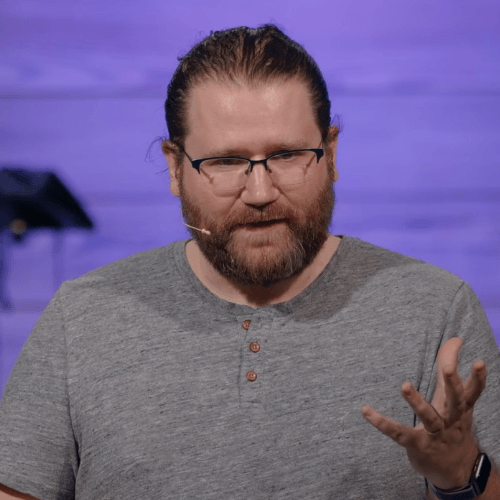
Taught by Adam Casalino
Single Teachings
